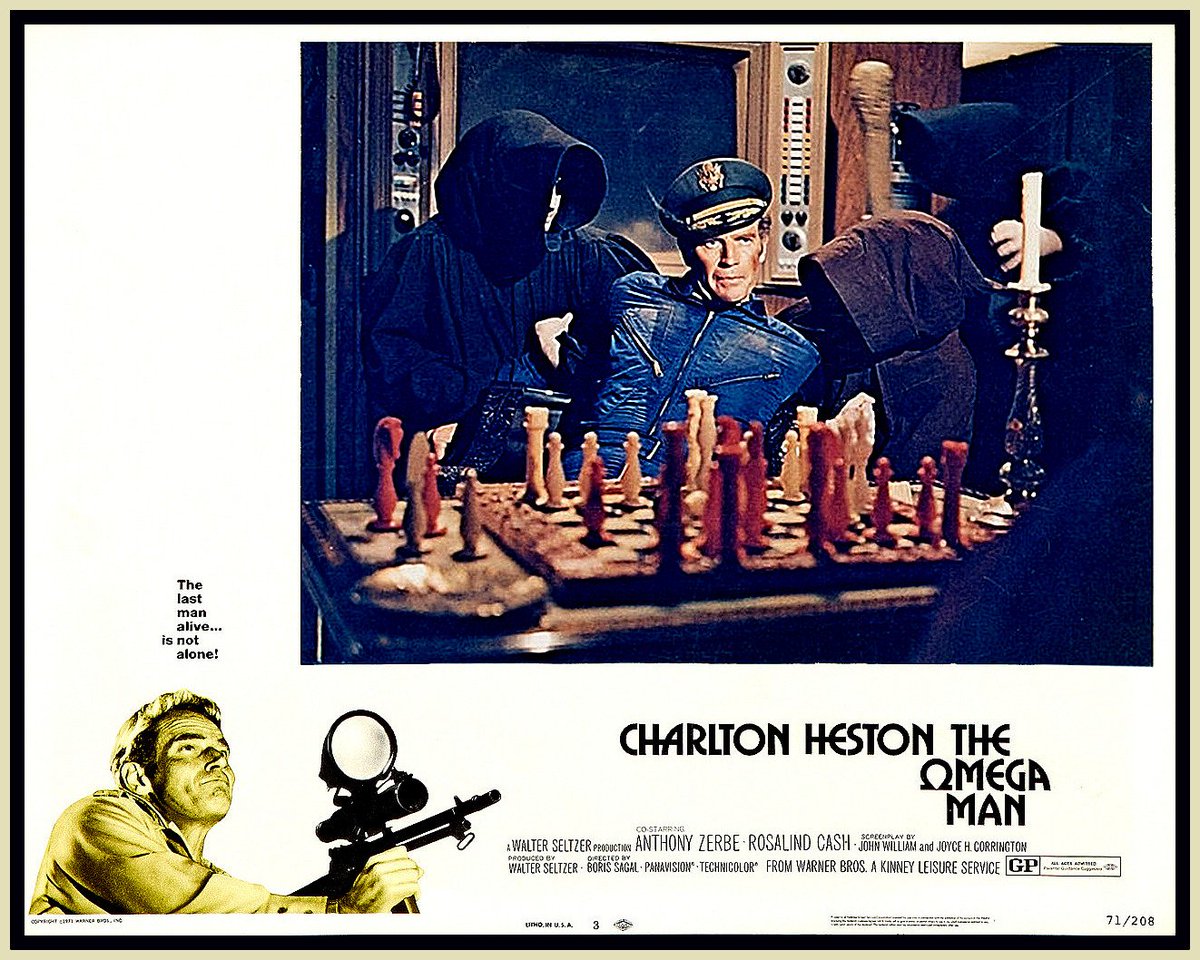 I’m thrilled to tell you all that episode 422 of The Projection Booth podcast is live and features yours truly, joining co-hosts Mike White and Maurice Bursztynski, to talk about Boris Sagal’s 1971 dystopian science fiction film, The Omega Man.
I’m thrilled to tell you all that episode 422 of The Projection Booth podcast is live and features yours truly, joining co-hosts Mike White and Maurice Bursztynski, to talk about Boris Sagal’s 1971 dystopian science fiction film, The Omega Man.
The Omega Man stars Charlton Heston as Richard Neville, the last human survivor of a devastating biological plague – so he thinks. Neville spends his days hunting down the only other remnants of the human race, a group of anti-technology, homicidal mutants, known as the Family, and headed by an ex-TV news reader, Matthias (Anthony Zerbe). At night, the only time that the sun sensitive mutants can come out, Neville holes up in his swanky Los Angeles apartment, trying to avoid being killed and living a weird pantomime of his pre-apocalypse linking, drinking too much and playing chess with a statue of Julius Caesar.
That is until he discovers another human survivor.
There are several reasons why I am so enamoured by The Omega Man. As I discuss in my monograph on another masterpiece of 1970s dystopian SF cinema, Rollerball, SF was a relatively marginal genre of cinema until 1968. That year saw two films released that changed the perception of the genre: Planet of the Apes and 2001: A Space Odyssey. These films turned SF into potentially profitable product, a shift that would eventually result in blockbusters such as Star Wars and Close Encounters of the Third Kind, both released in 1977. The Omega Man belongs to a group of films that appeared between 1968 and the late 1970s, which were less concerned with space travel and the possibility of alien life, than with exploring themes such as authoritarianism, over-population and pollution. A number of these films, including The Omega Man, also exhibit a deep unease over the negative impacts of technology.
The other reason I am so fascinated with The Omega Man, which we get to discuss on this episode of The Projection Booth, is the parallels between some the film’s themes and Heston’s real life political shift to the right. The mutants known as The Family can be viewed as a version of Charles Manson’s group of the same name, who came to be associated in the public imagination with the excess of the 1960s counterculture. There are also more than a few parallels between the Family and the equally murderous and anti-technological Cambodian guerilla group as the Khmer Rouge, which Washington had been secretly carpet bombing since the late 1960s.
Whether Heston as Neviller represents the fight against an out of control counter culture or is viewed as soldier, deep behind enemy lines, in a last ditch fight against communism, The Omega Man appeared the same year Heston completed his own political shift; from being a Democrat who was pro-civil rights and gun control and against the Vietnam War, to a hard line Republican who would enthusiastically support Reagan and become head of the National Rifle Association.
Anyway, the link to The Projection Book episode is here.
If you listen to it, I would love to know what your own thoughts are. Mike, Maurice and I also discussed the 1954 source novel for the film, I Am legend by Richard Matheson, and the weird but strangely effective 1964 film version of this, The Last Man on Earth, starring Vincent Price. We also talk about: the terrific score by Queensland born Ron Grainer; the film’s depiction of and and uneasy relationship with race; Neville as God; and The Omega Man’s relationship with other ‘last man on earth’ films and why it is that even when there are only one or two of us left, as humans we still can’t seem to get along.




















Cool! There’s my bedtime listening tonight!
Cheers, mate.